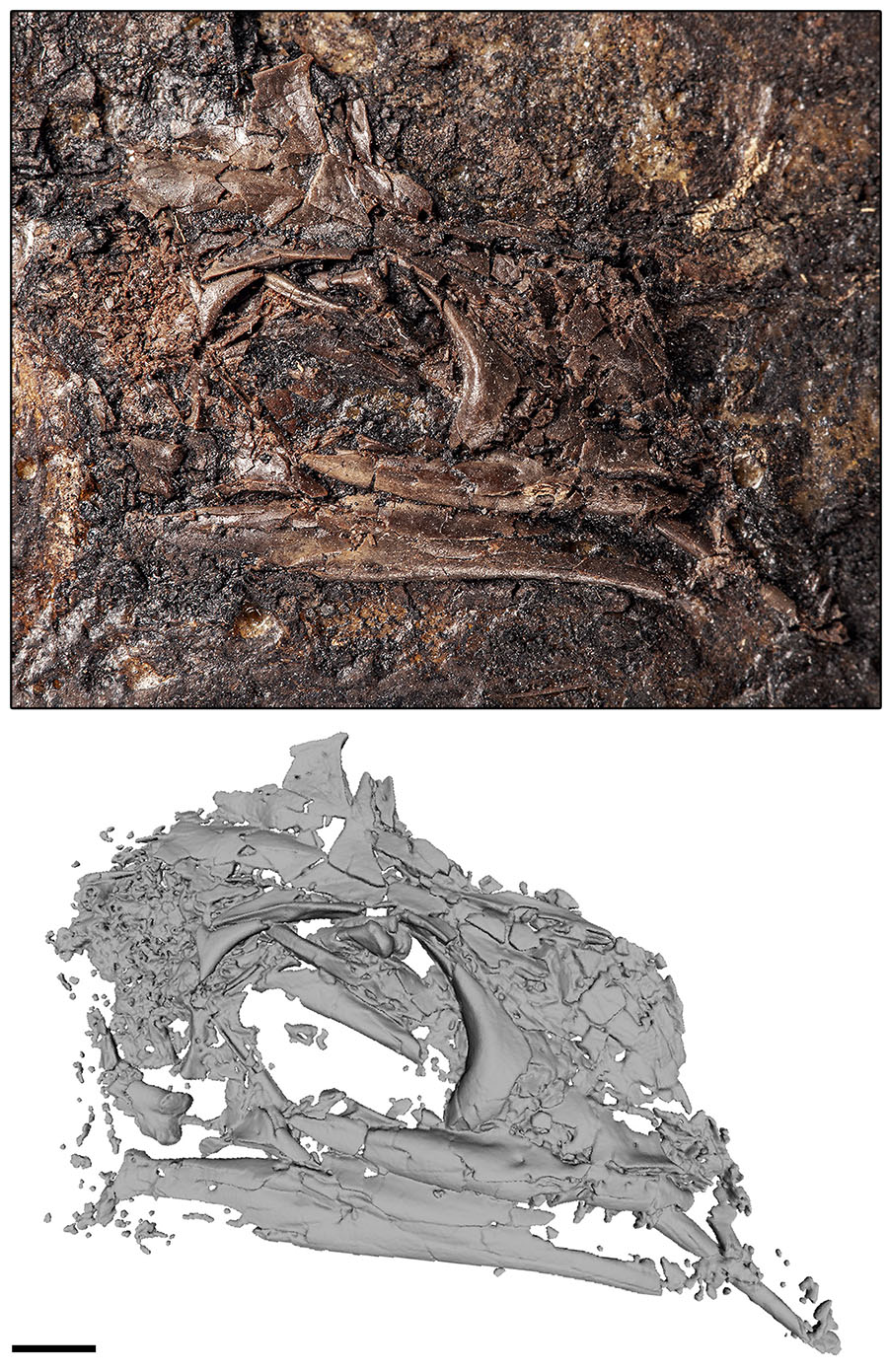Press Releases Archive
07.06.2022
A long history of European geckos
Research team with participation of the University of Tübingen investigates a fossil from Germany’s Geiseltal, closely related to today’s Mediterranean geckos
Geckos lived in Europe as early as 47 million years ago, say palaeontologists who have examined a nearly complete fossil gecko skull from central Germany. This previously unknown species was found in a former coalmining area – Geiseltal – and was described by a research team led by Dr. Andrea Villa of the Catalan Institute of Palaeontology Miquel Crusafont in Barcelona and biogeologist Dr. Márton Rabi of the University of Tübingen and Martin Luther University Halle-Wittenberg. The team found that the extinct gecko species is closely related to the European leaf-toed gecko, which is still native to parts of the Mediterranean region. The new fossil species represents the oldest known representative in its lineage to date. The new study has been published in the latest edition of Papers in Palaeontology.
Geckos comprise a highly diverse and ancient lineage of lizard-like reptiles. “Fossils of geckos are very rare and rarely well preserved. We have not learned much about their evolutionary history so far, even from rich sites like Messel and Geiseltal,” Andrea Villa says. The team is examining historical finds which were stored for many years in East Germany. The gecko skull that has now just been identified was found in 1933, according to Villa. It is a unique find, he says, “one of the most complete and oldest gecko skulls from the past 66 million years, the period after the great mass extinction of the dinosaurs.” This gecko species was previously unknown and is one of the earliest representatives of modern groups. The research team named it Geiseleptes delfinoi – after the site where it was found, Geiseltal; the closely-related present-day European leaf-toed gecko Euleptes europaea, and after the specialist in extinct reptiles, Dr. Massimo Delfino.
Highly adaptable
“Originally, these geckos could have come from Africa. In any case, our study proves that they also lived in Europe at least since the Eocene – 47 million years ago,” says Márton Rabi. The researchers' analysis shows that they are one of the few vertebrates that were already present during the Earth's last warm phase and have persisted ever since. Rabi says they lived here when the area of present-day Germany was covered with subtropical forest and there were alligators in the Arctic, as well as today, under cooler and drier conditions. That shows very great adaptability, he points out. “However, the climate change back then occurred over tens of millions of years, in startling contrast to current global warming. According to the worst projections, if emissions continue to rise, the Earth could return to Eocene conditions as early as 2100,” Rabi says.
The lifestyle of Geiseleptes delfinoi is uncertain. Based on its similarities with today's European gecko, researchers assume that, like today’s geckos, it was active in the evening and at night. “The Geiseltal was probably not the preferred habitat of Geiseleptes in the Eocene. Otherwise, more fossils of this species would have been found,” Villa speculates.
Contact:
Dr. Márton Rabi
Universität Tübingen
Mathematisch-Naturwissenschaftliche Fakultät
Biogeologie
Telefon +49 7071 29-73055
marton.rabispam prevention@uni-tuebingen.de
Contact for press:
Eberhard Karls Universität Tübingen
Public Relations Department
Dr. Karl Guido Rijkhoek
Director
Janna Eberhardt
Research Reporter
Telefon +49 7071 29-77853
Fax +49 7071 29-5566
janna.eberhardtspam prevention@uni-tuebingen.de
All press releases by the University of Tübingen

